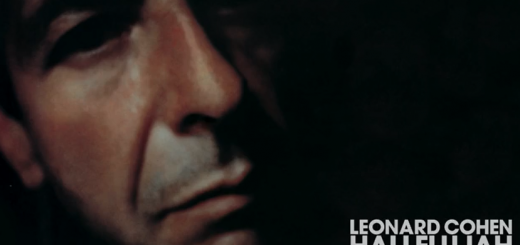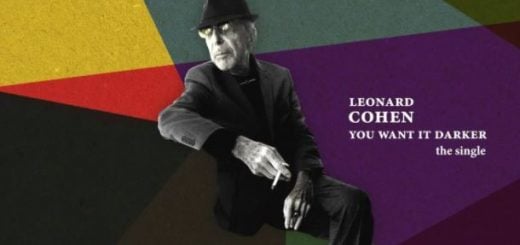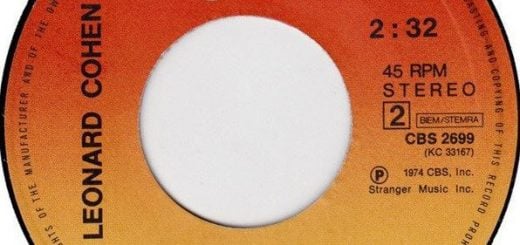Bird on the Wire by Leonard Cohen Lyrics Meaning – The Anthem of Imperfection and Redemption
Lyrics
Like a drunk in a midnight choir
I have tried in my way to be free
Like a worm on a hook
Like a knight from some old fashioned book
I have saved all my ribbons for thee
If I, if I have been unkind
I hope that you can just let it go by
If I, if I have been untrue
I hope you know it was never to you
Oh, like a baby, stillborn
Like a beast with his horn
I have torn everyone who reached out for me
But I swear by this song
And by all that I have done wrong
I will make it all up to thee
I saw a beggar leaning on his wooden crutch
He said to me, “You must not ask for so much”
And a pretty woman leaning in her darkened door
She cried to me, “Hey, why not ask for more?”
Oh, like a bird on the wire
Like a drunk in a midnight choir
I have tried in my way to be free
Leonard Cohen, the maestro of melancholy, presents in ‘Bird on the Wire’ a profound examination of freedom, regret, and the human condition. The song, engraved in the hallowed halls of songwriting greatness, offers listeners a pathway through Cohen’s introspective musings on life’s inescapable contradictions.
Within its sparse, poetic composition, ‘Bird on a Wire’ unfurls layers of raw human emotion, using vivid imagery and philosophical insight to articulate the complexity of seeking liberation in a world that binds us. Every note and word resonates with the struggle for self-acceptance, the quest for redemption, and the longing for a personal truth.
Perching on the Precipice: The Eternal Quest for Freedom
The central metaphor of ‘Bird on the Wire’ immediately conjures a sense of fragile balance, where the bird represents the human soul—yearning to take flight, yet restrained. Leonard Cohen’s melancholy voice delivers these opening lines as a testament to the ongoing strife inherent in a life dedicated to self-liberation. This avian imagery is not simply about escape, but the chance to find one’s own perch amidst adversity.
Cohen has been famously quoted as saying that this song was inspired by a bird he observed perched on a telephone wire. The symbolism extends beyond mere observation, mapping the dichotomy of the internal and external; an anchorage of the soul caught between skyward aspirations and earthbound duties.
Tangled in Life’s Contradictions: A Lyrical Dissection
‘Like a drunk in a midnight choir,’ Cohen confesses to the flawed attempts at purity and sobriety in life. There is an acknowledgment of dissonance here, the all-too-human inconsistency between ambition and reality, an echo that resounds in the ears of those who aim for perfection yet falter beneath the weight of their own humanity.
Meanwhile, ‘like a knight from some old fashioned book,’ invites the romanticism of chivalric codes—loyalty, honor, and sacrifice. Cohen’s stark revelations through these shifting analogies serve as mile markers in the quest for nobility, shedding light on personal battles and victories.
Unraveling the Poet’s Apology: Regret and Recognition
The raw vulnerability in Cohen’s admission of his past inadequacies—’If I, if I have been unkind’—speaks directly to the listener’s ability to empathize with detriment caused by unintended cruelties. It’s an overture to forgiveness, underscored by the humbling reminder that we are all capable of failure toward those we treasure.
In an age where apologies are often automated and disingenuous, Cohen’s appeal strikes a stark contrast. The plea for absolution reflects a deep-rooted honesty, making clear that while his missteps may have wounded, they were never aimed to inflict such pain.
A Soothsayer’s Wisdom: Encounters with the Marginalized
The penultimate verse presents two pivotal characters—the beggar and the pretty woman—each offering antithetical advice on desire and ambition. From these encounters, Cohen gleans truths that resonate universally: that one must tread the tightrope between gratitude and aspiration, between the humility of acceptance and the courage to yearn for more.
These striking figures act as mirrors to Cohen’s own psyche, reflecting the dichotomy of the human experience—our propensity for contentment matched equally by our insatiable hunger. It’s a call to embrace the beggar’s prudent resignation alongside the woman’s daring proposition.
A Tapestry of Memorable Lines: The Echoes of Redemption
Leonard Cohen’s masterful repetition of ‘Like a bird on the wire / Like a drunk in a midnight choir’ serves as a thematic and melodic refrain, anchoring the song’s motifs of liberty and fallibility. With each verse, these lines evolve from a simple declaration to an anthem of personal redemption.
Far from insignificant, this repetition underscores the cyclical nature of life’s trials and triumphs. Cohen does not shy away from acknowledging his transgressions but instead insists on the promise of atonement, a universal yearning embraced in these eternal lines.








